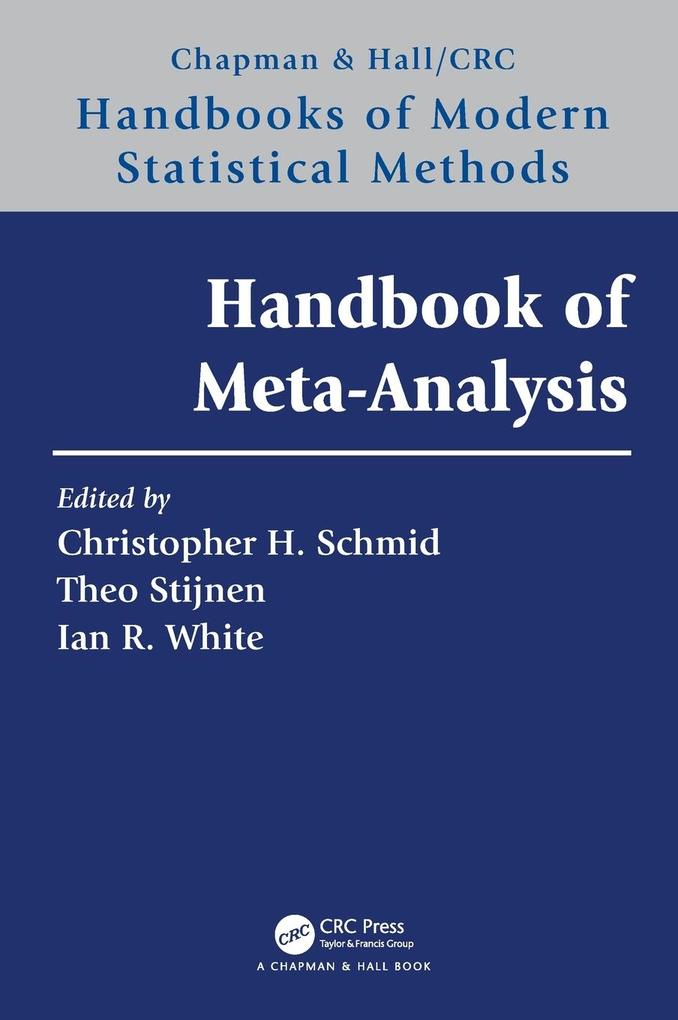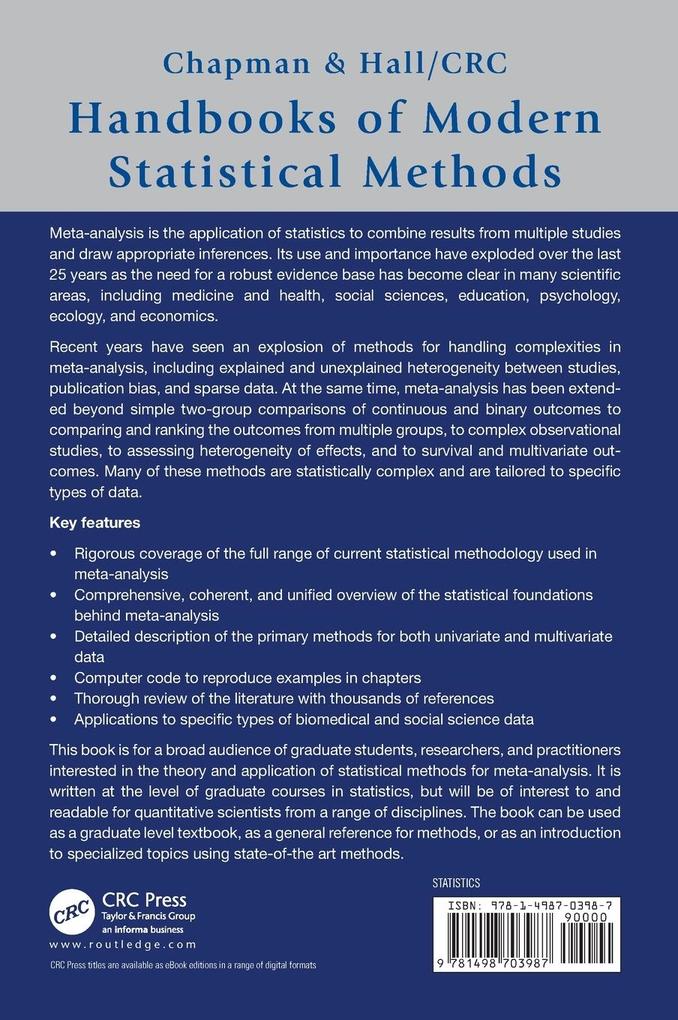
Zustellung: Di, 01.07. - Fr, 04.07.
Versand in 1-2 Wochen
VersandkostenfreiBestellen & in Filiale abholen:
Meta-analysis is the application of statistics to combine results from multiple studies and draw appropriate inferences. Its use and importance have exploded over the years as the need for a robust evidence base has become clear in many scientific areas like medicine and health, social sciences, education, psychology, ecology and economics.
Inhaltsverzeichnis
1. Introduction to systematic review and meta-analysis
2. General themes in meta-analysis
3. Choice of effect measure and issues in extracting outcome data
4. Analysis of univariate study-level summary data using normal models
5. Exact likelihood methods for group-based summaries
6. Bayesian methods for meta-analysis
7. Meta-regression
8. Individual participant data meta-analysis
9. Multivariate meta-analysis
10. Network meta-analysis
11. Model Checking in meta-analysis
12. Handling internal and external biases: quality and relevance of studies
13. Publication and outcome reporting bias
14. Control risk regression
15. Multivariate meta-analysis of survival proportions
16. Meta-analysis of correlations, correlation matrices and their functions
17. The meta-analysis of genetic studies
18. Meta-analysis of dose-response relationships
19. Meta-analysis of diagnostic tests
20. Meta-analytic approach to evaluation of surrogate endpoints
21. Meta-analysis of epidemiological data, with a focus on individual participant data
22. Meta-analysis of prediction models
23. Using meta-analysis to plan further research
2. General themes in meta-analysis
3. Choice of effect measure and issues in extracting outcome data
4. Analysis of univariate study-level summary data using normal models
5. Exact likelihood methods for group-based summaries
6. Bayesian methods for meta-analysis
7. Meta-regression
8. Individual participant data meta-analysis
9. Multivariate meta-analysis
10. Network meta-analysis
11. Model Checking in meta-analysis
12. Handling internal and external biases: quality and relevance of studies
13. Publication and outcome reporting bias
14. Control risk regression
15. Multivariate meta-analysis of survival proportions
16. Meta-analysis of correlations, correlation matrices and their functions
17. The meta-analysis of genetic studies
18. Meta-analysis of dose-response relationships
19. Meta-analysis of diagnostic tests
20. Meta-analytic approach to evaluation of surrogate endpoints
21. Meta-analysis of epidemiological data, with a focus on individual participant data
22. Meta-analysis of prediction models
23. Using meta-analysis to plan further research
Mehr aus dieser Reihe
Produktdetails
Erscheinungsdatum
08. September 2020
Sprache
englisch
Seitenanzahl
572
Reihe
Chapman & Hall/CRC Handbooks of Modern Statistical Methods
Herausgegeben von
Christopher H. Schmid, Theo Stijnen, Ian White
Verlag/Hersteller
Produktart
gebunden
Gewicht
1257 g
Größe (L/B/H)
260/183/35 mm
ISBN
9781498703987
Entdecken Sie mehr
Bewertungen
0 Bewertungen
Es wurden noch keine Bewertungen abgegeben. Schreiben Sie die erste Bewertung zu "Handbook of Meta-Analysis" und helfen Sie damit anderen bei der Kaufentscheidung.


















